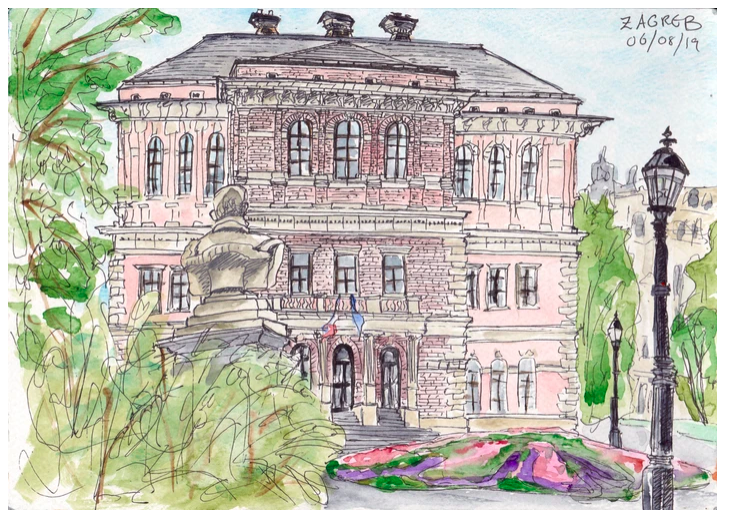For the purposes of this article, we sought clues on the EU programmes by reaching out to the main political parties. Namely: the Croatian Democratic Union (HDZ, which won 40% of the seats in the parliamentary elections); the Social Democrats (SDP, 28%); the Homeland Movement (DP, rightwing populist, 9%); The Bridge (Most, conservative, 7%); We Can! (Možemo, eco-socialist, the Croatian equivalent of Spain's Podemos, 6%).
Although we were promised answers in telephone conversations, only the SDP and Možemo responded with them before publication.
Let us take first the political right, which in Croatia consists of the HDZ (part of the European People's Party), the DP and Most (which, if it enters parliament, will probably sit with the Identity and Democracy group). On the existing evidence, we have a decent idea of the foremost priority of these parties in the upcoming election: "security".
The Croatian right sees the migration of refugees from war-torn or environmentally and economically devastated areas of Asia and Africa primarily as a security problem. That is why it has called for Croatia's army and civil-defence forces to be sent to the borders with Bosnia and Serbia. Making full use of the stereotypes surrounding "migrants", it has sought to justify the violent methods used in recent years by the Croatian police to "defend the territory".
One undeniably genuine security problem is the war in Ukraine and the Russian threat. The right wants to counter this by better arming the Western allies; improving military coordination between EU countries; strengthening the Croatian army and reintroducing compulsory military service for men.
In addition to security, these three parties will try to prove to their voters that they are the guarantors of Croatia's hard-won national sovereignty. A year ago the European Public Prosecutor's Office (EPPO) exposed a number of corrupt HDZ ministers, as well as the inefficiency of Croatia's judiciary and its subservience to government. The EPPO has thus naturally found itself in the crosshairs of the right on the issue of "sovereignty protection".
The dispute came to a head in March with a heated public exchange between Prime Minister Andrej Plenković (HDZ) and the EU's chief public prosecutor Laura Kövesi over the very issue of the EPPO's jurisdiction. Croatia's newly elected chief prosecutor Ivan Turudić (whose appointment had been criticised as political interference in the judiciary) has said that the EPPO's jurisdiction should be completely abolished.
For its part the SDP told us that it will focus its campaign on three themes: economic equality, security and equality. It says its vision of Europe is one of social justice; solidarity between EU countries; better healthcare, social protection and education; reduced youth employment; and transparency and accountability in politics.















